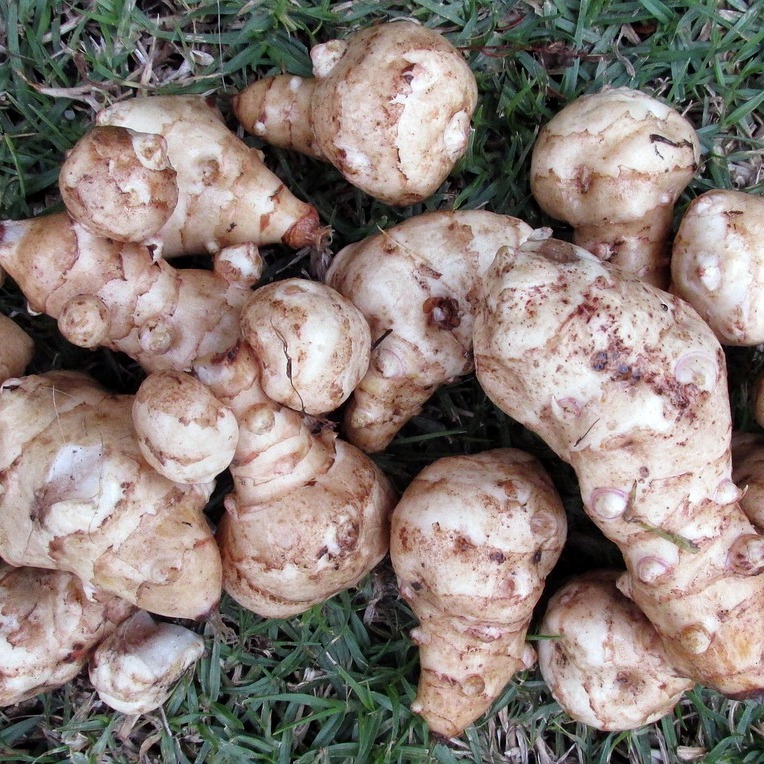
Introduction
Jerusalem artichokes, also known as sunroots, are nutritious and flavorful tuber vegetables that can be grown successfully in the United Kingdom. With their unique taste and versatile uses, growing Jerusalem artichokes in your garden can be a rewarding experience. In this comprehensive guide, we will walk you through the process of growing Jerusalem artichokes, from selecting the right variety to providing the necessary care for a bountiful harvest. Let's get started!
Choosing the Right Variety
When it comes to Jerusalem artichokes, there are several varieties suitable for the UK climate. Here are some popular choices:
- 'Fuseau': A popular variety known for its smooth, elongated tubers and nutty flavor.
- 'Stampede': This variety produces large, round tubers and has a sweet, earthy taste.
- 'Red Fuseau': An outstanding variety with red skin and creamy flesh, offering a unique visual appeal and flavor.
- 'White Fuseau': This variety offers white skin and a slightly sweeter taste compared to other varieties.
Planting and Soil Preparation
Jerusalem artichokes are typically grown from tubers. Follow these steps to plant and prepare your Jerusalem artichoke bed:
- Choosing a location: Select a sunny spot in your garden with well-drained soil. Jerusalem artichokes prefer a slightly acidic soil pH between 6.0 and 7.0.
- Soil preparation: Prepare the soil by removing weeds and incorporating organic matter, such as compost or well-rotted manure, to improve soil fertility and structure.
- Planting method: Plant Jerusalem artichoke tubers about 4-6 inches deep and space them 12-18 inches apart in rows that are 36-48 inches apart.
- Watering: Water the soil thoroughly after planting to help the tubers establish their roots.
Growing
To ensure healthy growth and a bountiful harvest of Jerusalem artichokes, consider the following tips:
- Sunlight: Jerusalem artichokes prefer full sun but can tolerate partial shade. Aim to provide them with at least 6-8 hours of direct sunlight each day.
- Watering: Keep the soil consistently moist, especially during dry spells. Jerusalem artichokes require regular watering, especially during their growth and tuber formation stages.
- Soil conditions: Jerusalem artichokes prefer well-drained soil that is rich in organic matter. Mulching around the plants can help retain soil moisture and suppress weeds.
- Fertilizing: Jerusalem artichokes are not heavy feeders, but you can apply a balanced fertilizer or side-dress with compost or well-rotted manure during the growing season to provide additional nutrients.
- Staking: As Jerusalem artichokes can grow tall and become top-heavy, it is beneficial to provide support, such as stakes or trellises, to prevent the plants from toppling over in windy conditions.
- Pest control: Monitor your Jerusalem artichoke plants for common pests such as aphids or slugs. Use organic or chemical controls as necessary.
- Harvesting: Jerusalem artichokes can be harvested 90-120 days after planting, usually in late autumn or early winter. Dig carefully around the plants and gently lift the tubers out of the ground.
Conclusion
Growing Jerusalem artichokes in the United Kingdom allows you to enjoy the nutty flavor and versatile uses of these tuber vegetables. By choosing the right variety, providing proper care, and addressing common challenges, you can cultivate healthy Jerusalem artichoke plants that add a unique touch to your culinary creations. Whether you enjoy them roasted, steamed, or in soups, homegrown Jerusalem artichokes will surely enhance your culinary experiences. Happy Jerusalem artichoke growing!